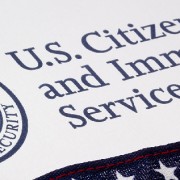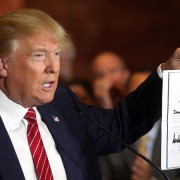Jeffrey B. Kahn, Esq. and Windus A. Fernandez Brinkkord Discusses Dropping Oil Prices, 2016 Corporate Earnings and Taxpayer Rights On ESPN Radio – January 15, 2016 Show
Topics Covered:
- With A Barrel Of Oil Now Going For As Low As $30.00, Should We Be Concerned That This Could Result In Financial Turmoil For Investors?
- Margins, Energy and the Economy: the three themes Goldman Sachs says will dominate 2016 earnings.
- Valuable rights you have as a taxpayer when interacting with the IRS.
- Questions from our listeners:
- You’ve emphasized figures according to Goldman Sachs Group, how reliable (historically) is the projected information that they are releasing? Is it fair to say that they are accurate within a reasonable means, or is this like the Wall Street strategists running predictions of the S&P 500?
- Is there anything different about filing tax returns in 2016 that I should be aware of?
****************************************************************
Jeff states: Yes sometimes we just have to take the money and run!
Good afternoon! Welcome to Inside Advantage – Your Financial And Tax Radio Show.
This is Board Certified Tax Attorney, Jeffrey B. Kahn, the principal attorney of the Law Offices Of Jeffrey B. Kahn, P.C. and head of the KahnTaxLaw team.
Windus states:
And this is Licensed Financial Planner, Windus A. Fernandez Brinkkord, Senior Vice President Of Investments at Trilogy Financial Services.
You are listening to our weekly radio show where we talk everything about finances and taxes from the ESPN 1700 AM Studio in San Diego, California.
Jeff states:
When it comes to knowing tax laws and paying taxes, let’s face it — everyone in the U.S. is either in tax trouble, on their way to tax trouble, or trying to avoid tax trouble!
Windus states:
And whether you are on the rebound or flying high, we have the information you need to make sound financial decisions and map out your strategy for success.
Jeff states:
Our show is broadcasted each Friday at 2:00PM Pacific Time and replays are available on demand by logging into the KahnTaxLaw website at www.kahntaxlaw.com.
Jeff states:
For today’s show we have coming up:
Segment 2 material: Margins, Energy and the Economy: the three themes Goldman Sachs says will dominate 2016 earnings.
Windus states:
Also coming up is:
Segment 3 material: Valuable rights you have as a taxpayer when interacting with the IRS.
And of course towards the end of our show, we will be answering some of your questions.
Jeff starts chit chat with Windus.
So for today’s top story: Crude oil’s plunge to nearly $30 a barrel is sparking concern that it could sink a third of U.S. oil producers.
Jeff starts:
With A Barrel Of Oil Now Going For As Low As $30.00, Should We Be Concerned That This Could Result In Financial Turmoil For Investors?
Three recent articles in the Wall Street Journal discuss this possibility. http://on.wsj.com/1OY5Qhw; http://on.wsj.com/1ZXEjP1; http://on.wsj.com/1ZXpCLQ
Jeff states: This issue which will impact each of us has multiple levels, so let’s break this down for you on how crude-oil prices plunged to a twelve year low which could lead to bankruptcies of oil development companies who were not prepared to operate at such a low price. We will then move on to how these low prices have affected the demand for oil on the U.S., European and Chinese economies. And then consider the weakening Chinese currency which the Chinese government is looking to prop up.
Windus states: Starting with the direction that U.S. crude oil prices have taken this past week – on Monday, the benchmark price of crude dropped more than 5% to trade at a 12-year low of $31.41 a barrel. This not only triggers concern that a third of the U.S. oil producers could sink, but also that it could continue to crash below the $30 threshold. Various heavier grades of crude are already under $20 a barrel, with Iraq’s heavy grade flirting around at $20 and Canada’s heavy grade oils trading at $16 a barrel.
Jeff replies: The Wall Street Journal reported that the three largest investment banks, Morgan Stanley, Goldman Sachs Group Inc. and Citi Group Inc., are expecting oil to fall into the $20 a barrel territory given the slowdown of the Chinese economy and the appreciation of the U.S. dollar and the growing glut in oil supply as oil producers are looking to maintain market domination as any price.
Windus states: So you may be thinking, why so much excess? Well, London-based Energy Aspects focused on the mild start to the Northern Hemisphere winter as a key factor in the fall of demand at 800,000 barrels less this time of year. Further weather updates for this next week are forecasting above-normal temperatures for some of our country’s biggest markets for oil-based heating in New England, only contributing to the lack of demand. The Wall Street Journal reported that too much supply and not nearly enough demand has led to more than 30 smaller companies with combined $13 billion of outstanding debt, having already filed for bankruptcy protection. Survival for as many as a third of American oil-and-gas producers would be possible if a rebound to a least $50 a barrel could occur.
Jeff states: Morgan Stanley recognized in a report this week that our current situation could be worse than the last big oil bust in 1986 which lasted for years. North American producers are losing nearly $2 billion every week at current prices and are expected to cut their budgets by 51% from 2014. However, while the reduction exceeds the worst years of the 80’s, the oil glut is expected to continue as well.
Windus states: Jeff I agree that there is no end in sight of the supply excess considering that most energy companies took on large amounts of debt to finance the U.S. drilling boom. These companies have to keep pumping in order to generate enough cash to put toward interest payments and avoid declaring bankruptcy. According to S&P Capital IQ, these companies have actually poured more than 40% of their third quarter revenue into the interest payments on their outstanding loans.
Jeff states: In the same instance, some of the strongest operators with larger assets have used hedges to lock in oil prices well above $50 a barrel, serving as an insurance policy against low prices. These stable companies are going about business as usual, pulling more oil out of the ground to maintain efficiency. It’s a smart move, considering investors will keep rewarding growth at energy companies that are considered to be solid. We have already seen this in the stock market as the stock prices for energy companies that announced declines into 2016 are getting pounded.
Windus states: The value of loans among oil and gas borrowers rated “substandard, doubtful or loss”, nearly quintupled to $34.2 billion. That means that 15% of the total energy loans evaluated are in poor standing, in comparison to the 3.6% in 2014. So the next step for these struggling companies is to sell assets or utilize revolving credit lines. However, unlike the supply of oil which now seems unlimited, their borrowing capacity is not and that is way the bankruptcy card now can come into play.
Jeff states: Of course Windus. Why loan or ease these producers who are struggling in this low-oil-price environment when you can wait for the upsurge of bankruptcies rendering productive assets at a deep discount.
Windus states: A lot of investors are banking on this and are just waiting for all debt to be wiped out before jumping in. The Wall Street Journal reports that $100 billion of buying power from investors could be brought to the table. Senior energy analyst at FBR & Co, Chad Mabry, said it best stating, “There’s no reason to be anybody’s savior. If you can just get the assets out of bankruptcy, then you don’t have to save anyone.”
Jeff follows: So once the oil producers’ balance sheets are cleared of this debt, these producers can then operate profitably at a lower oil price and investors can reap the rewards.
Windus states: The Wall Street Journal goes on to report that financial distress hasn’t been a positive catalyst for a slowing down U.S. oil production. The concern is that any amount of a cut in production may come too late and the output estimates for 2016 are already 1% higher than the start of last year when oil was trading for 40% more.
Jeff states: In the same instance, oil could rebound and dig out of this historic 12 year low. Light, crude oil for February delivery rose 31 cents, or an increase of 1%. Even ICE Futures in Europe gained 39 cents, at a 1.2% rise. I know that this increase is not much but at least it is an increase.
Windus states: As far as fixing the issue of over producing, Tuesday, Nigeria’s oil minister said that some nations are calling for an emergency OPEC meeting. Historically these meetings were designed to determine production levels as a way of regulating prices. Remember that the Organization of the Petroleum Exporting Countries (OPEC) still controls more than one-third of the world’s crude oil supply. Despite what OPEC decides to do, investors believe that it will now affect the trends we discussed.
Jeff replies: So with every oil producer effected by this, how do we tell what is the rock-bottom for oil prices? I think a good clue is to look at the manipulation of the Yuan by the Chinese Government and the affect that it is having on stocks, commodities and currencies around the world.
Windus starts: Now China’s oil intake is second only to the U.S. in the global market but its demand for oil is slackening. Barclays is predicting that a decrease of 210,000 barrels a day. That’s then a big hit on oil exporters like Russia who is China’s biggest supplier of crude oil.
Jeff states: So considering the oil relationship between China and Russia and the unexpected extreme move to weaken the Yuan last week in combination with a surge of selling by Chinese investors, the falling Chinese stock prices should be no surprise. The Shanghai Composite Index dropped 5.3 % (already down 15% in this new year). We have also seen so far U.S. stocks tumbling and currencies in South Africa and Russia falling.
Windus continues: Now China accounts for 11% of the world’s GDP, 12% of the oil consumption and half of the global demand for steel. They also rank as the No. 1 trading partner for countries such as South Korea, Australia and Brazil, drawing exports worth more than 10% of GDP from Singapore and Taiwan.
Jeff replies: Historically, the Chinese government has looked to isolate its economy from the rest of the world by strictly controlling their currency and their banking system. But let’s face it – China’s enormous presence in global trade makes it more tightly entwined with the rest of the world.
Windus states: And so with the Chinese government still trying to control their economy as they have done in the past, the possibility could be grim for the price of goods and commodities, and generally speaking, the global markets.
Jeff comments: In the same instance, when the value of the Yuan falls, it helps steelmakers by cutting prices and exporting to places like Colombia and Brazil, which pushes down prices even further.
Windus finishes: Last week, when the Yuan fell, key materials for steelmaking like coking coal and iron ore decreased as well. Good for buyers, bad for places like Australia who are producing raw ingredients that go into the metal.
Jeff states: Well it’s time for a break but stay tuned because we are going to tell more about margins, energy and the economy: the three themes Goldman Sachs says will dominate 2016 earnings.
You are listening to Board Certified Tax Attorney, Jeffrey B. Kahn, and Licensed Financial Planner, Windus A. Fernandez Brinkkord on Inside Advantage on ESPN.
BREAK
Welcome back. This is Inside Advantage – Your Financial And Tax Radio Show on ESPN and you are listening to Board Certified Tax Attorney, Jeffrey B. Kahn, and Licensed Financial Planner, Windus A. Fernandez Brinkkord.
Goldman Thinks These 3 Themes Will Dominate 2016 Earnings
Jeff states: So with this being the first show of 2016 with both Windus and I in the studio, I think it would be good to discuss what themes will dominate earnings in 2016.
Jeff continues: But before we do Windus would like to remind you of her offer …
Windus Plug: Trilogy Financial Services will provide you with a retirement cash flow analysis which is a $600.00 value for free as long as you mention the Inside Advantage Radio Show when you call to make an appointment. Call my office to make an appointment to meet with me, Windus A. Fernandez Brinkkord. The number to call is 858.314.5169. That is 858.314.5169.
Jeff states: Some recent articles in The Week and The Wall Street Journal have looked at what we could expect in the way of 2016 earnings given the instability on Wall Street with a lack luster start to 2016, a widening trade deficit and what looks like a full blown financial crisis in China. What was surprising that given all this bad news, the labor market keeps improving as the economy added 292,000 jobs in December.
http://www.theweek.com/articles/598194/hillary-clinton-should-still-worried-about-economy; http://www.theweek.com/articles/597993/what-worries-wall-street; http://blogs.wsj.com/moneybeat/2016/01/11/what-to-expect-from-fourth-quarter-earnings/#; http://blogs.wsj.com/moneybeat/2016/01/11/goldman-thinks-these-3-themes-will-dominate-2016-earnings-talks/
Windus: As we all have seen, signals for 2016 “don’t look so hot” after the market rang in the New Year with a tremendous opening day belly flop reminiscent of 2008. The other not-so-welcomed signals are signs of slowing growth in China and weak U.S. manufacturing data.
Jeff continues: Not to mention the S&P 500 ended the year down 0.7% for the first time since the financial crisis. BUT, despite all these shortcomings the U.S. economy seems to be in good shape.
Windus replies: Yes, Jeff. Reports show that unemployment is down to 5%, consumer confidence is up, and as we all saw, the Federal Reserve as enough trust in the recovery to have raised rates for the first time since 2006.
Windus continues: But let’s take a look what one of the top investment banks is revealing. After all, some experts still see us in danger on the horizon. For instance, Citigroup’s Citi Research puts the probability of the U.S. slipping into another recession at 65% this year, which they are partially basing on historical data that five years into a recovery, the odds of economic downturn increase to 50/50. Currently, we’re in year seven and in the process of facing an economic challenge with the slowdown of the Chinese economy that could “batter the fragile U.S. recovery into submission”.
Jeff replies: Plenty could go wrong on top of that. The Federal Reserve could raise interest rates too quickly, and a strong dollar may keep impairing manufacturers. For that matter, oil prices could stay low putting more pressure on the energy market.
Windus replies: That’s great for the consumer! I love this discount on gas myself, but trends are showing that consumers are saving the money that’s put back in their pockets or paying off debt instead of spending it.
Jeff comments: I love the discount at the pump too!
Windus states: Now, on a positive note, a group of Wall Street strategists are expecting the S&P 500 to rebound and gain an average of 8% this year. Yet, with that being said, most market predictions like this aren’t worth much considering since 2000, the S&P has only returned a 4% average annual gain, while strategists have predicted 10% yearly returns.
Jeff states: So Windus what is Goldman Sachs Group saying about all of this?
Windus replies: Starting off, they’re pointed out three themes we’re going to see in the economy this year. First of which is profit margins.
Windus continues: Goldman is under the belief that profit margins hit a high in the third quarter of 2014 at 9.1% and we will finish 2015 at 8.2%. Furthermore, it expects the next couple of years to improve steadily in profitability at a rate of 8.8% and 8.9% respectfully, fueled by a recovery in the energy sector. And as reported in an article through Money Beat in the Wall Street Journal, Goldman continues to explain that the following years, 2018 to 2019, anticipate a fall, with margins remaining below their 2014 high.
Windus continues: Much of the credit for boosting the S&P 500 profitability during the recent bull market, has been credited to the decent margin expansion from Apple Inc. and the tech sector as a whole. Forecasts continue to see Apple margins on a rise of 0.2 percentage points through 2017, pressuring margins for the tech sector.
Jeff states: So Goldman’s first theme is profit margins. What is the second theme?
Windus replies: Next, Goldman mentions energy earnings. Or in this case, as we’ve previously discussed, the lack there of, as oil fell 66% from its high in the middle of 2014. Unfortunately, predictions show 2016 with drops in overall revenue of 2% as descending oil prices continue to linger.
Windus continues: Although oil is currently trading around $30 a barrel, Goldman expects the international average will weigh in around $44 this year, which is still 17% lower than this previous year.
Windus continues: The good news is that S&P 500 earnings are not that sensitive to energy profits since this specific sector makes up such a small portion of the index.
Jeff asks: So you have covered the first two themes of Goldman – that being profit margins and energy, what is the third theme?
Windus replies: The last theme that Goldman Sachs Group is focusing on in the economy. Forecasting a slowing GDP growth over the next couple of years, Goldman is focusing on a 2.2% in 2016 as well as in the following 2017, with a lower 2% in 2018, when in 2015 we saw 2.5% growth. Slowing GDP growth would be a drag on earnings.
Windus continues: Granted, we had the worst start to the year…ever, and the S&P 500 is already off 6% for the year. So, we’re going to keep seeing the cut in profits for the fourth quarter from the same issues in the energy sector, rising US dollar and slow global growth, that weighed on earnings for a majority of 2015.
Windus continues: According to FactSet , the fourth-quarter profits forecast to decline 68% for the energy sector. In which case, if you exclude the energy sector completely, we’re looking at flat profits this quarter for the S&P 500. This would actually mark four consecutive quarters of declines.
Windus confirms: I do believe that would be the first time this has happened since the third quarter of 2009.
Jeff states: In corporate America, sales growth is a crucial factor as it looks to mend its bottom line. Only six of the ten S&P 500 sectors are expected to see top line growth in the fourth quarter according to FactSet.
Windus concludes: Those sectors are telecom, health care, consumer discretionary, utilities, financials and consumer staples at an estimated rise of 13%, 7.8%, 3.7%, 3.1%, 2.8% and 1.6% respectfully.
Jeff states: Well it sounds like 2016 will be a challenging year for investors which is another reason why …
Windus PLUG: Trilogy Financial Services will provide you with a retirement cash flow analysis which is a $600.00 value for free as long as you mention the Inside Advantage Radio Show when you call to make an appointment. Call my office to make an appointment to meet with me, Windus A. Fernandez Brinkkord. The number to call is 858.314.5169. That is 858.314.5169.
Jeff states: Stay tuned because after the break we are going to tell you valuable rights you have as a taxpayer when interacting with the IRS.
You are listening to Board Certified Tax Attorney, Jeffrey B. Kahn, and Licensed Financial Planner, Windus A. Fernandez Brinkkord on Inside Advantage on ESPN.
BREAK
Jeff states: Welcome back. This is Inside Advantage – Your Financial And Tax Radio Show on ESPN and you are listening to Board Certified Tax Attorney, Jeffrey B. Kahn, and Licensed Financial Planner, Windus A. Fernandez Brinkkord.
Calling into the studio from my Walnut Creek Office is my associate attorney, Amy Spivey.
Chit chat with Amy
Getting to Know Your Taxpayer Bill of Rights
Jeff states: Did you know that every taxpayer has a set of fundamental rights. The Taxpayer Bill of Rights takes the many existing rights in the tax code and groups them into 10 categories.
But before we start, we want to remind you that … PLUG: The Law Offices Of Jeffrey B. Kahn, P.C. will provide you with a Tax Resolution Plan which is a $500.00 value for free as long as you mention the Inside Advantage Radio Show when you call to make an appointment. Call my office to make an appointment to meet with me, Jeffrey Kahn, right here in downtown San Diego or at one of my other offices close to you. The number to call is 866.494.6829. That is 866.494.6829.
Jeff continues: Every taxpayer should be aware of these rights before interacting with the IRS. We will cover the first five in today’s show and grade how the IRS is doing on preserving each right for taxpayers.
[Windus to read off each “right” followed by comment by Amy and then by Jeff. Windus to end each one asking Amy and Jeff what grade they give from IRS on a scale of A to F. OK for Jeff and Amy to give different grades. Windus can ask why the difference.]
Windus states: It’s great that I have not one but two tax attorneys that I can bounce these rights on.
Number one … The Right to Be Informed. Taxpayers have the right to know what is required to comply with the tax laws. They are entitled to clear explanations of the laws and IRS procedures in all tax forms, instructions, publications, notices and correspondence. They have the right to know about IRS decisions affecting their accounts and clear explanations of the outcomes.
Jeff adds comments. Amy can also add comments.
Number two… The Right to Quality Service. Taxpayers have the right to receive prompt, courteous and professional assistance in their dealings with the IRS and the freedom to speak to a supervisor about inadequate service. Communications from the IRS should be clear and easy to understand.
Jeff adds comments. Amy can also add comments.
Number three… The Right to Pay No More than the Correct Amount of Tax. Taxpayers have the right to pay only the amount of tax legally due, including interest and penalties. They should also expect the IRS to apply all tax payments properly.
Jeff adds comments. Amy can also add comments.
Number four… The Right to Challenge the IRS’s Position and Be Heard. Taxpayers have the right to object to formal IRS actions or proposed actions and provide justification with additional documentation. They should expect that the IRS will consider their timely objections and documentation promptly and fairly. If the IRS does not agree with their position, they should expect a response.
Jeff adds comments. Amy can also add comments.
Number five… The Right to Appeal an IRS Decision in an Independent Forum. Taxpayers are entitled to a fair and impartial administrative appeal of most IRS decisions, including certain penalties. Taxpayers have the right to receive a written response regarding a decision from the Office of Appeals. Taxpayers generally have the right to take their cases to court.
Jeff adds comments. Amy can also add comments.
Jeff states: I know how dealing with the IRS or a State Tax Agency can be a very stressful experience which we why …
PLUG: The Law Offices Of Jeffrey B. Kahn, P.C. will provide you with a Tax Resolution Plan which is a $500.00 value for free as long as you mention the Inside Advantage Radio Show when you call to make an appointment. Call my office to make an appointment to meet with me, Jeffrey Kahn, right here in downtown San Diego or at one of my other offices close to you. The number to call is 866.494.6829. That is 866.494.6829.
Thanks Amy for calling into the show. Amy says Thanks for having me.
Stay tuned as we will be taking some of your questions. You are listening to Board Certified Tax Attorney, Jeffrey B. Kahn, and Licensed Financial Planner, Windus A. Fernandez Brinkkord on Inside Advantage on ESPN.
BREAK
Jeff states: Welcome back. This is Inside Advantage – Your Financial And Tax Radio Show on ESPN and you are listening to Board Certified Tax Attorney, Jeffrey B. Kahn, and Licensed Financial Planner, Windus A. Fernandez Brinkkord.
And Windus and I always pleased to make our offers to our listeners where… PLUG: The Law Offices Of Jeffrey B. Kahn, P.C. will provide you with a Tax Resolution Plan which is a $500.00 value for free as long as you mention the Inside Advantage Radio Show when you call to make an appointment. Call my office to make an appointment to meet with me, Jeffrey Kahn, right here in downtown San Diego or at one of my other offices close to you. The number to call is 866.494.6829. That is 866.494.6829.
Windus states: Windus PLUG: Trilogy Financial Services will provide you with a retirement cash flow analysis which is a $600.00 value for free as long as you mention the Inside Advantage Radio Show when you call to make an appointment. Call my office to make an appointment to meet with me, Windus A. Fernandez Brinkkord. The number to call is 858.314.5169. That is 858.314.5169.
You should also know that the securities and advisory services are offered through National Planning Corporation (NPC) Member FINRA, SIPC, and a Registered Investment Advisor. Trilogy Financial Services and NPC are separate and unrelated Entities.
Jeff states: If you would like to post a question for us to answer, you can go to my website at www.kahntaxlaw.com and click on “Radio Show”. You can then enter your question and maybe it will be selected for our show.
OK Windus, what questions have you pulled for us to answer?
Cindy from San Diego asks: You’ve emphasized figures according to Goldman Sachs Group, how reliable (historically) is the projected information that they are releasing? Is it fair to say that they are accurate within a reasonable means, or is this like the Wall Street strategists running predictions of the S&P 500?
Windus responds.
Matt from Chula Vista asks: Is there anything different about filing tax returns in 2016 that I should be aware of?
Jeff answers: The IRS announced that the nation’s 2016 individual income tax filing season opens January 19th. The IRS expects more than 150 million tax returns will be filed this year.
People will have several extra days to file their tax returns this year. Everyone will have until Monday, April 18th, to file their 2015 tax returns and pay any tax due because of the Emancipation Day holiday in Washington, D.C., falling on Friday, April 15th. Taxpayers in Maine and Massachusetts will have until Tuesday, April 19th, because of Patriot’s Day observances on April 18th.
The IRS expects more than 70% of taxpayers to again receive tax refunds this year. Last year, the IRS issued 109 million refunds, with an average refund of $2,797.
More than four out of five returns are expected to be filed electronically, with a similar proportion of refunds issued through direct deposit.
Now whether you prepare your own tax returns or go to a tax preparer, make sure you have all your year-end statements in hand before you file your return. This includes Forms W-2 from employers, Forms 1099 from banks and other payers, and for those claiming the premium tax credit, Form 1095-A from the Health Insurance Marketplace. Doing so will help avoid refund delays and the need to file an amended return later.
Jeff states: Well we are reaching the end of our show.
Remember you can send us your questions by visiting the kahntaxlaw website at www.kahntaxlaw.com.
Windus states: Have a great day everyone!






 Follow
Follow Follow
Follow